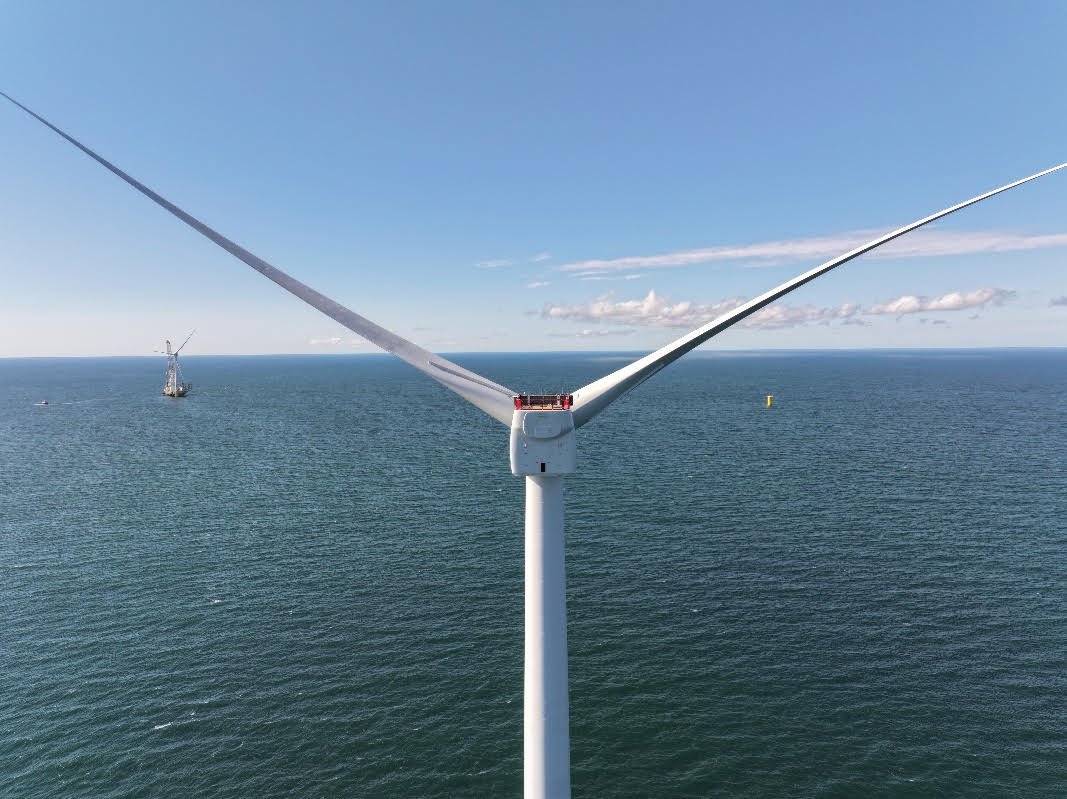
The robust investor confidence that has propelled artificial intelligence (AI) related stocks to unprecedented heights throughout much of the current year appears to be wavering, as evidenced by a significant downturn across major technology indices. This past week, the tech-heavy Nasdaq Composite Index experienced a notable decline of 3%, marking its most substantial weekly drop since April of the previous year. This performance has sparked considerable debate among financial analysts and market observers, prompting a reevaluation of the sustainability of current AI valuations amidst a complex interplay of macroeconomic pressures and evolving market sentiment.
The AI Investment Boom: A Recent History
The recent surge in AI investment can be traced back to a confluence of technological breakthroughs and market excitement. While AI has been a field of academic and industrial research for decades, the advent of generative AI models, exemplified by the widespread public adoption of tools like OpenAI’s ChatGPT in late 2022, ignited a profound shift in perception. This moment transformed AI from a specialized technical domain into a mainstream technological revolution with immense commercial potential. Venture capital poured into AI startups, and established tech giants aggressively reoriented their strategies, announcing massive investments in AI research, development, and infrastructure.
Companies like Nvidia, a critical enabler of AI due to its high-performance graphics processing units (GPUs), saw its market capitalization soar, becoming one of the most valuable companies globally. Software firms like Palantir, specializing in data analytics and AI-powered decision-making platforms, and enterprise solutions providers like Oracle, integrating AI into their cloud services, also became darlings of the AI investment narrative. This period was characterized by a "growth at all costs" mentality, where future potential often outweighed immediate profitability, fueled by the belief that AI would fundamentally transform every industry. Investors, eager not to miss out on the "next big thing," often overlooked traditional valuation metrics, pushing stock prices to levels many considered stretched.
Initial Market Tremors
The recent market correction saw several prominent AI-centric companies bear the brunt of the sell-off. Palantir Technologies, known for its data integration and AI-driven operational platforms used by governments and large corporations, experienced an 11% drop in its stock price this week. Oracle Corporation, a veteran in the enterprise software space now heavily invested in cloud infrastructure and AI services, saw its shares decline by 9%. Nvidia, arguably the poster child of the current AI boom due to its indispensable role in AI model training, was not immune, shedding 7% of its value.
Even industry titans like Meta Platforms and Microsoft Corporation, both of which have publicly committed to substantial AI investments and reported strong underlying business performance, felt the impact. Their stocks each fell by approximately 4%. These declines occurred despite both companies reiterating their aggressive spending plans on AI infrastructure and research, underscoring a potential disconnect between long-term strategic vision and short-term investor patience. The severity of these drops in comparison to broader market movements suggests that while overall economic concerns are at play, the tech sector, and specifically AI-related stocks, are facing unique scrutiny.
Underlying Economic Headwinds
The recent tech stock decline cannot be viewed in isolation; it is intricately linked to broader economic uncertainties that have cast a shadow over the market. One significant factor mentioned by analysts is the ongoing government shutdown. While the direct impact of a government shutdown can vary, it typically introduces a layer of uncertainty into the economy, potentially disrupting federal contracts, delaying regulatory approvals, and impacting consumer and business confidence. Such instability often leads investors to adopt a more cautious stance, favoring less volatile assets over high-growth, high-risk tech stocks.
Furthermore, declining consumer sentiment has been a persistent concern. When consumers feel less secure about their financial future or the overall economic outlook, they tend to reduce discretionary spending, which can directly impact the revenue streams of many technology companies, particularly those reliant on advertising or direct consumer sales. Coupled with this, widespread layoffs observed across various sectors, including technology, signal a potential slowdown in economic activity and corporate belt-tightening. These factors collectively contribute to an environment where investors become more risk-averse, prompting them to question the lofty valuations of companies, especially those whose profitability may still be largely prospective.
Tech Giants’ Continued AI Bets
Despite the recent market turbulence, major tech players like Meta and Microsoft remain steadfast in their commitment to AI, signaling that the strategic imperative for AI integration is not diminishing. Both companies have articulated ambitious plans to significantly increase their capital expenditures on AI, primarily focusing on building out robust AI infrastructure, including data centers, specialized chips, and talent acquisition.
Microsoft, for instance, has been a leading investor in OpenAI and has rapidly integrated generative AI capabilities across its product suite, from its Azure cloud services to its Microsoft 365 applications. The company views AI as a fundamental layer that will enhance productivity, create new revenue streams, and maintain its competitive edge in the enterprise software and cloud computing markets. Similarly, Meta Platforms is pouring billions into AI research and development, not only for its social media platforms but also for its metaverse ambitions. The company believes AI is crucial for improving content recommendation algorithms, developing realistic avatars, and creating immersive virtual experiences. These heavy investments reflect a long-term strategic conviction that AI is not merely a feature but a foundational technology that will redefine their core businesses and open up entirely new markets. However, the market’s reaction suggests that while the strategic vision is clear, the path to monetizing these massive investments and generating commensurate returns remains a subject of intense scrutiny.
Valuation Concerns and Investor Sentiment
The concept of "stretched valuations" is central to understanding the current market sentiment. As Jack Ablin of Cresset Capital observed, "Valuations are stretched… Just the slightest bit of bad news gets exaggerated… and good news is just not enough to move the needle because expectations are already pretty high." This sentiment encapsulates the challenge faced by high-growth sectors, particularly those experiencing rapid technological shifts like AI. When investor expectations for future growth are baked into current stock prices to an extreme degree, any deviation from perfection can trigger disproportionate negative reactions.
The AI narrative, while compelling, has perhaps led to a scenario where the market has priced in several years of anticipated growth and profitability, sometimes without a clear roadmap for how those expectations will be met. This can create a fragile investment environment where even strong earnings reports might not be enough to satisfy an already overly optimistic market. Instead, investors become hyper-focused on any perceived weakness, whether it’s a slight miss on revenue forecasts, a deceleration in growth, or increased capital expenditure without immediate returns. This shift in investor psychology from unbridled enthusiasm to cautious realism suggests a maturing phase for the AI investment landscape, where fundamental analysis and tangible results may start to outweigh speculative potential.
Broader Market Perspective and Sector Rotation
A critical indicator that the recent downturn is particularly concentrated in the tech and AI sectors is the performance of other major indices. While the Nasdaq Composite, heavily weighted towards technology stocks, suffered a 3% decline, the S&P 500 and the Dow Jones Industrial Average experienced less severe drops of 1.6% and 1.2%, respectively. The S&P 500 includes a broader mix of industries, and the Dow Jones is typically seen as a barometer for traditional industrial and financial sectors. The disparity in performance suggests that the market’s concerns are not uniformly distributed but are rather more acutely felt within the technology segment.
This trend could indicate a degree of sector rotation, where investors are moving capital out of perceived high-risk, high-valuation tech stocks and into more stable, value-oriented sectors that might offer better risk-adjusted returns in an uncertain economic climate. Such shifts are common during periods of economic reevaluation and can lead to a more balanced market, albeit at the expense of previously high-flying sectors. It signals a move away from the concentrated leadership of a few tech giants towards a broader market participation, potentially reflecting a more sober assessment of future growth prospects across different industries.
Looking Ahead: A Maturing AI Market?
The recent market correction in AI-related stocks may signify a crucial inflection point rather than an outright loss of faith in artificial intelligence itself. It is more likely a recalibration of expectations, moving from an era of pure speculative enthusiasm to one demanding more tangible evidence of profitability and sustainable business models. The underlying technological advancements in AI continue at a rapid pace, and the long-term potential for AI to drive productivity, innovation, and economic growth remains largely undisputed.
However, the investment landscape is evolving. Companies will face increased pressure to demonstrate clear pathways to monetizing their AI investments, showcasing not just technological prowess but also robust financial performance. For investors, this period might usher in a more discerning approach, prioritizing companies with strong fundamentals, clear competitive advantages, and realistic growth projections over those riding purely on hype. While the "AI boom" may transition into a more measured "AI integration" phase, the technology’s transformative power is unlikely to diminish. Instead, the market is signaling a demand for maturity, sustainability, and concrete value from the companies leading the AI revolution. The coming months will reveal whether this is a temporary pause or a more fundamental shift in how Wall Street perceives and values the future of artificial intelligence.








